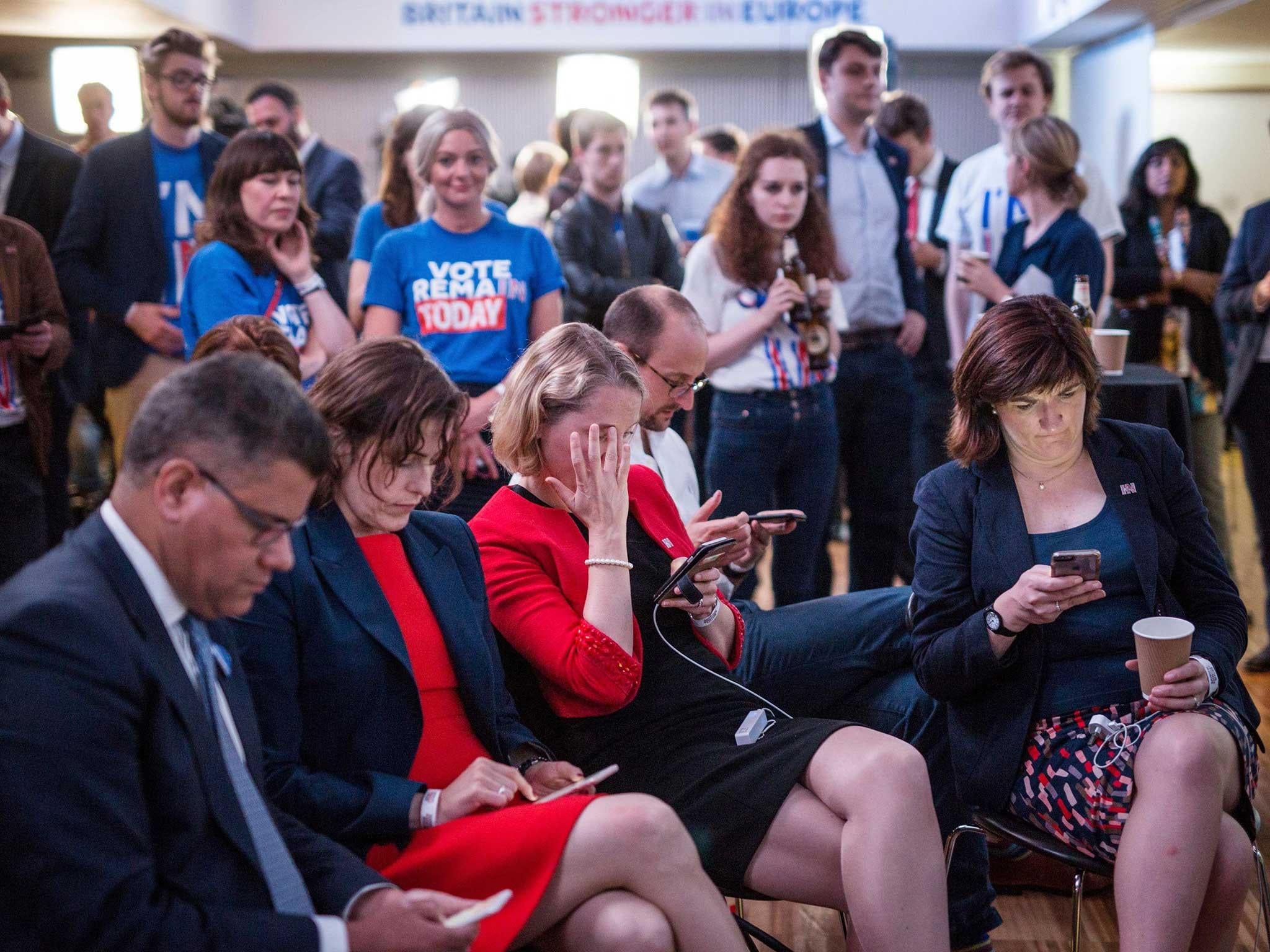It's time for London to leave the UK and stay in the EU
When even Boris Johnson and Michael Gove look like they're speaking at a funeral, you know we're in trouble. Not even they really wanted this


It’s hard to digest what happened this morning in the UK, especially when Boris Johnson and Michael Gove – the supposed triumphant victors of the whole charade – are standing in front of you looking like they’re speaking at a funeral. This is a “glorious opportunity for Britain”, Boris said in the tone of a political prisoner reading out a false confession. And in many ways he is a prisoner of his own politics. He played with the idea of Brexit, probably expecting a narrow victory for Remain and the opportunity to ride the momentum of angry pro-Leave sentiment right to the Prime Minister’s office. Now, instead, he faces the possibility of actually having to steer Britain out of the EU and into a brave new world of probable recession, continued austerity and isolation from our nearest neighbours.
BoJo – who mentioned that he wanted to speak to people who didn’t vote for a Brexit, “especially young people”, which said it all – genuinely told us that the results of this referendum don’t make us “any less united [as the UK] or any less European”. Funnily enough, Nicola Sturgeon – who practically skipped onto the podium – doesn’t agree. Her rousing speech about how Scotland had voted overwhelmingly to stay within the EU, how she deeply regretted the UK-wide results, and how a second referendum on Scottish independence was on the horizon, was markedly more animated than Gove, Boris or even Farage’s reactions. The message was clear: this is her moment.
And if this is a moment for Scotland, why not for others? There have been murmurs of the possibility of Northern Ireland voting to join the Republic after their own votes went a similar way to the Scottish. Meanwhile, many cosmopolitan Northern cities – Manchester, Liverpool and my own hometown of Newcastle included – voted Remain. Most markedly, my new, adopted hometown of London voted overwhelmingly to stay: 60 per cent of boroughs voted against a Brexit, and in my constituency of Hackney 78.5 per cent voted against Brexit. 94 per cent of the borough of Southwark did the same.
London is a very different beast to the rest of the UK – statistically just as different as Scotland (62 per cent for Remain) and Northern Ireland (56 per cent). Immigration to London is higher than anywhere else in England, for obvious reasons. It also has a much younger average age – the median age in London was 34.0 years in 2012, compared with 39.7 years in the rest of the UK, and the city has the lowest regional percentage of people aged 65 and over (11.3 per cent of the population). House prices, as we know, are also a completely different beast in the capital: London’s average house price last year was £556,350 according to Rightmove, whereas the average house price in Newcastle was £182,415.
If Farage, Johnson, Gove and their motley crew of fellow Brexiteers believe in local government as much as they say they do, they have to face the inevitability of Scotland moving away from the UK – and the possibility of a movement for London to leave as well. Londoners did not want this result: casting your eye over the voting numbers tells you that much immediately. Young people especially didn’t want it. And if, like me, the idea of the most right-wing Tory government since Thatcher led by Boris Johnson makes you feel sick to your stomach, you should demand that London takes control of its own future – rather than letting three overgrown schoolboys decide it for you in a playground row.
London is already somewhat of a city state, and City Hall could easily become a London Parliament. In 2014, the Financial Times reported that “barely 7 per cent of all tax paid by London’s residents and businesses is retained by its mayor and boroughs, compared with 50 per cent in New York.” And as more concessions are offered to Scotland, and the UK faces the very real possibility of a break-up, London has good reason to want in on that kind of bargain.
In many ways, this wouldn’t be too painful or unusual a transition. Osborne announced the beginning of devolution of NHS services last December after his spending review stated that we were to move toward a local-led health and social care system in 2020. Additionally, Greater Manchester was the first English region to gain full control of its health and social care spending this year, as part of agreements on further devolution for the region.
London has a population right now that is bigger than Scotland and Wales put together and generates 22 per cent of the UK’s GDP while being home to only 12.5 per cent of the UK’s population; its economy is the size of Sweden’s. Back when the Scottish referendum happened, 20 per cent of Londoners reported that they were interested in the idea of London secession.
We’ve woken up today to a different kind of UK, and it’s our job to react wisely to it. I voted Remain, and I wanted the UK to stay together with a close relationship with the EU. That dream is over now, and faced with the reality of stalled housebuilding, a wildly fluctuating stock market and long-term financial uncertainty, the choice seems clear to me: London didn’t vote for this, and Londoners should go it alone.


Join our commenting forum
Join thought-provoking conversations, follow other Independent readers and see their replies